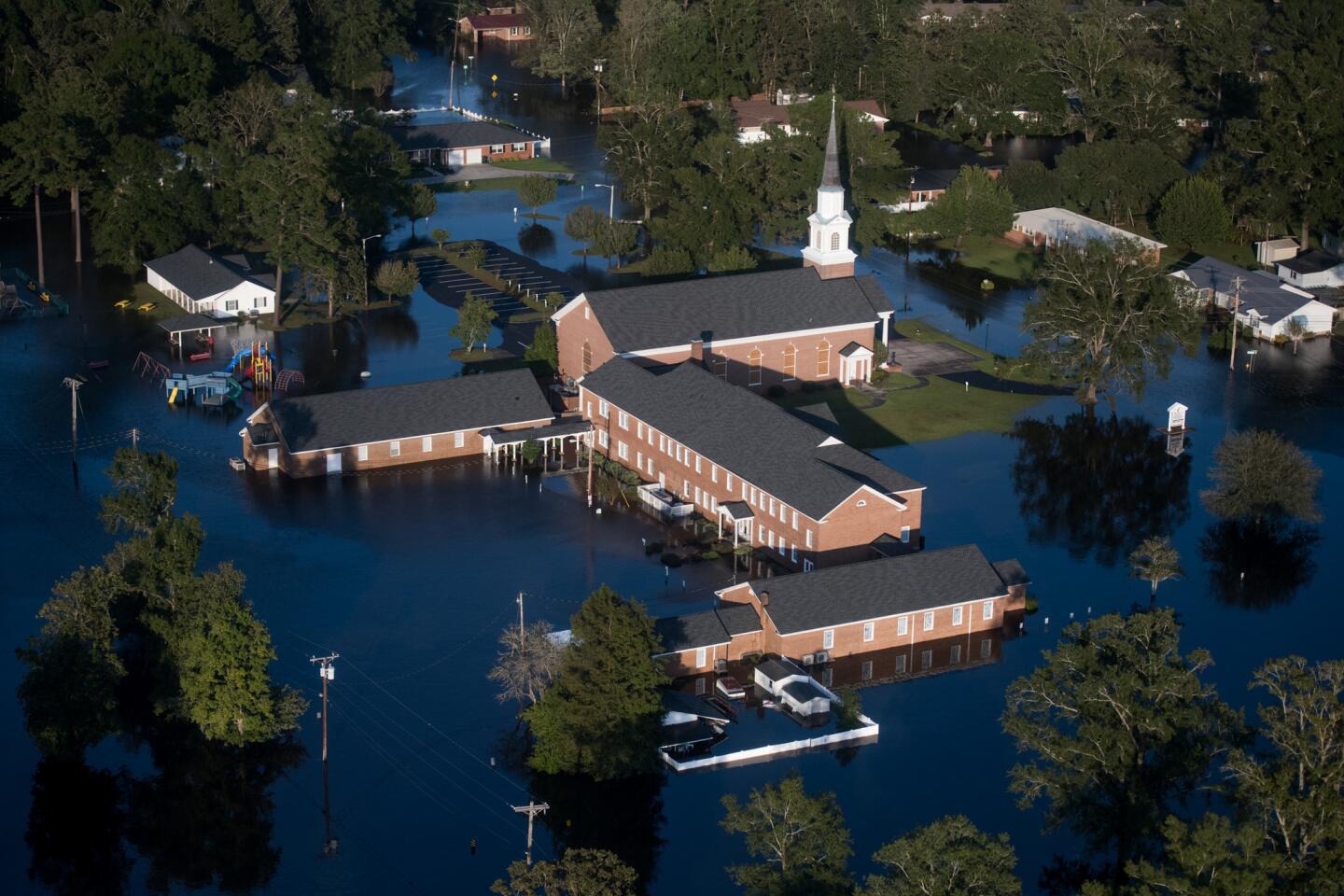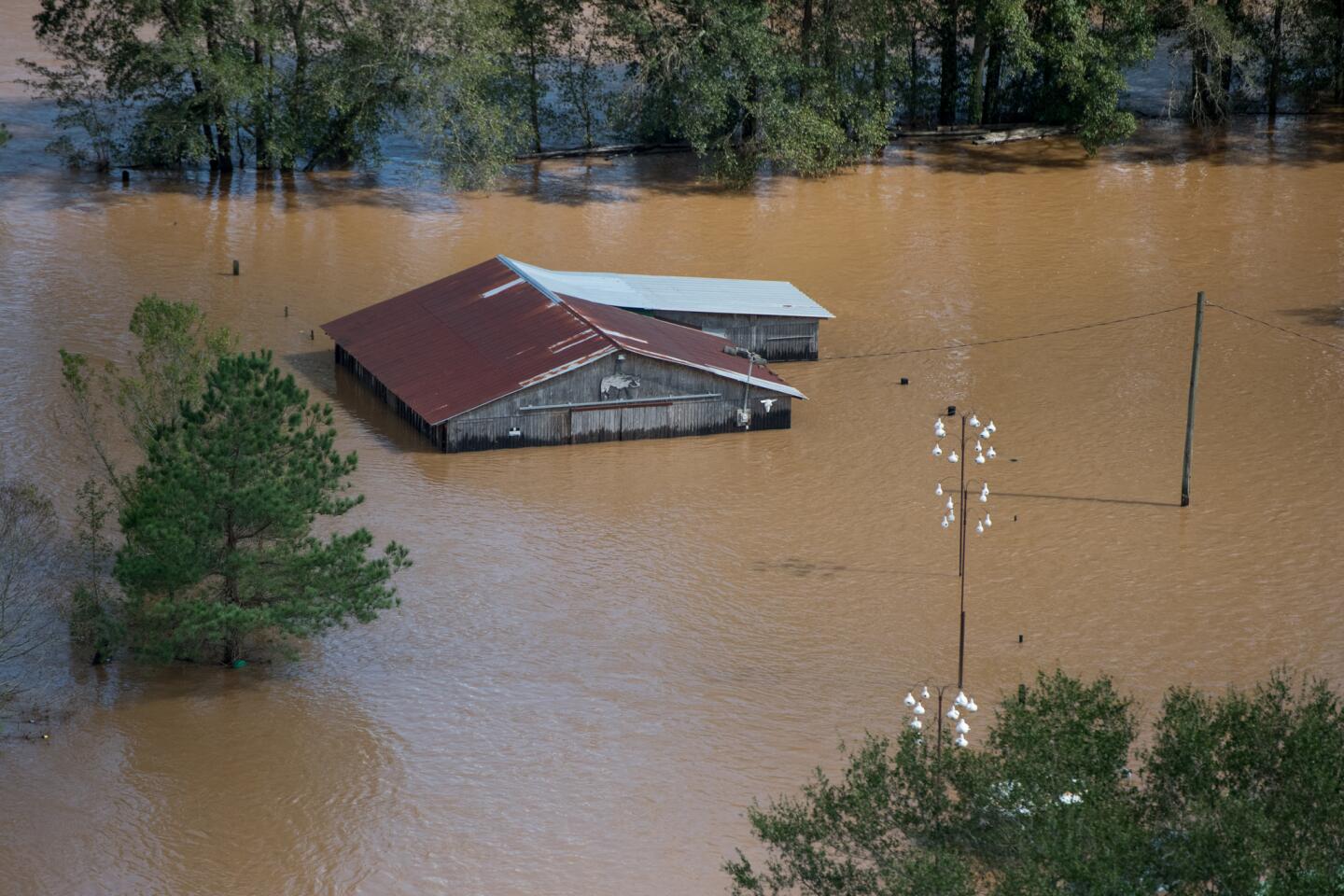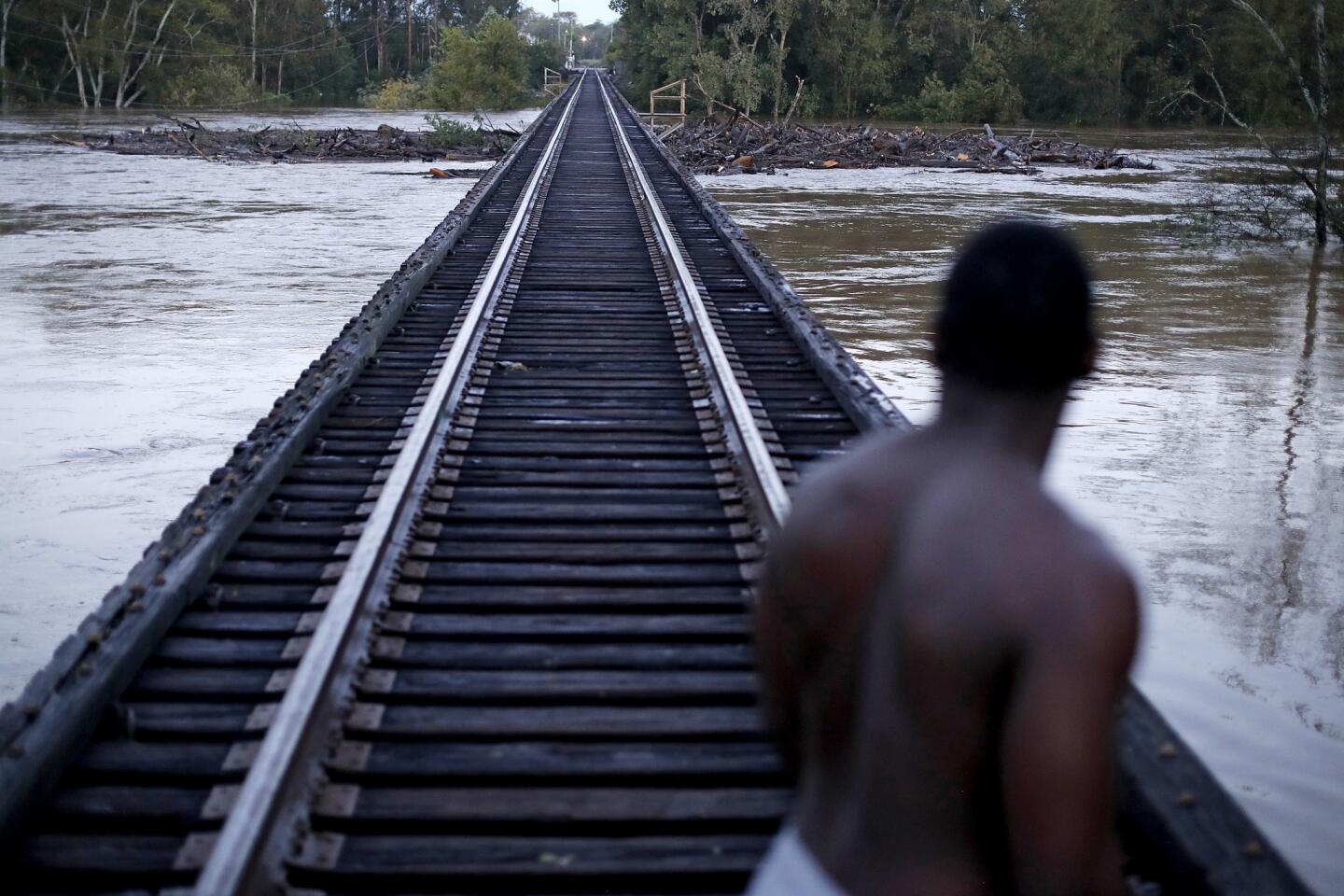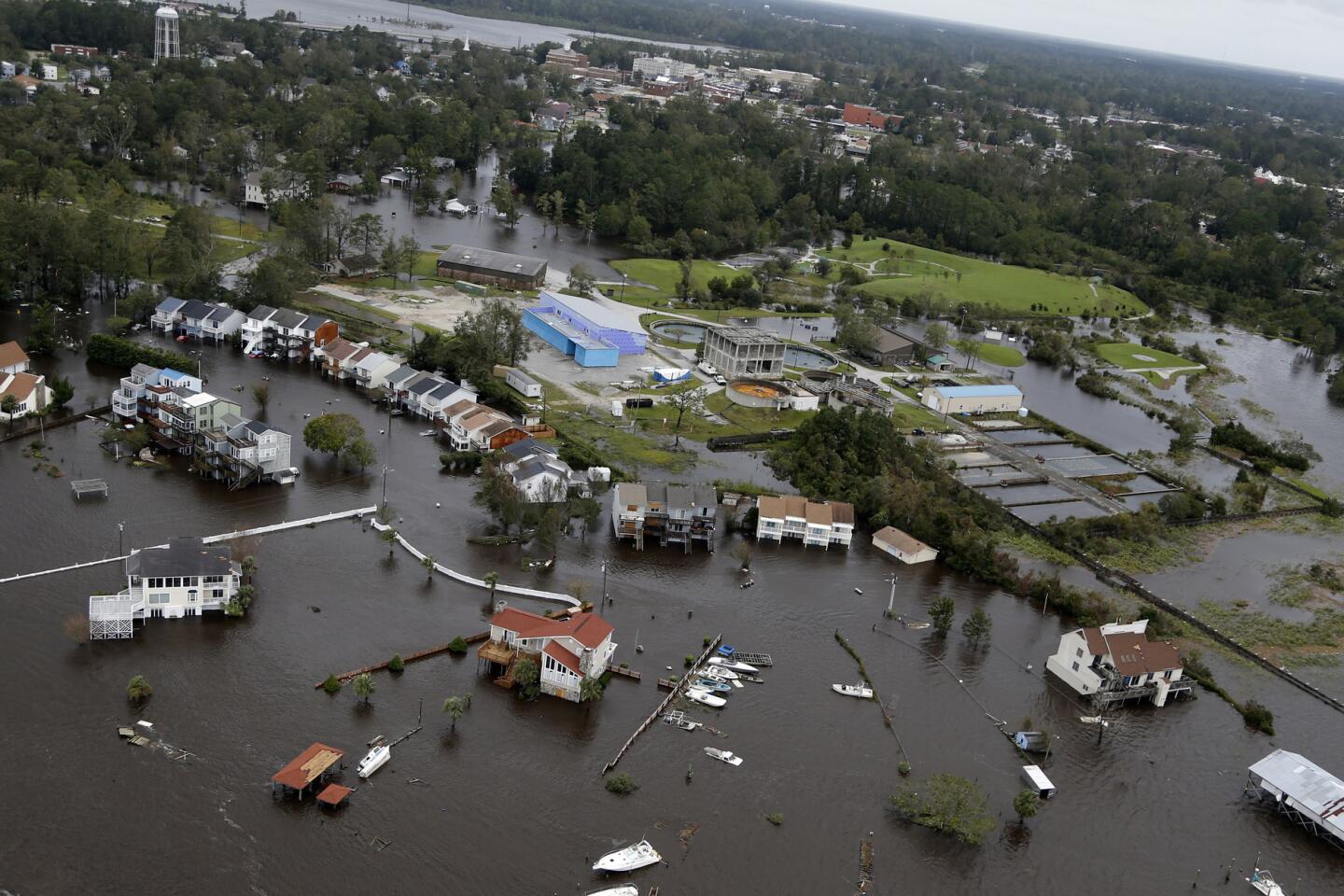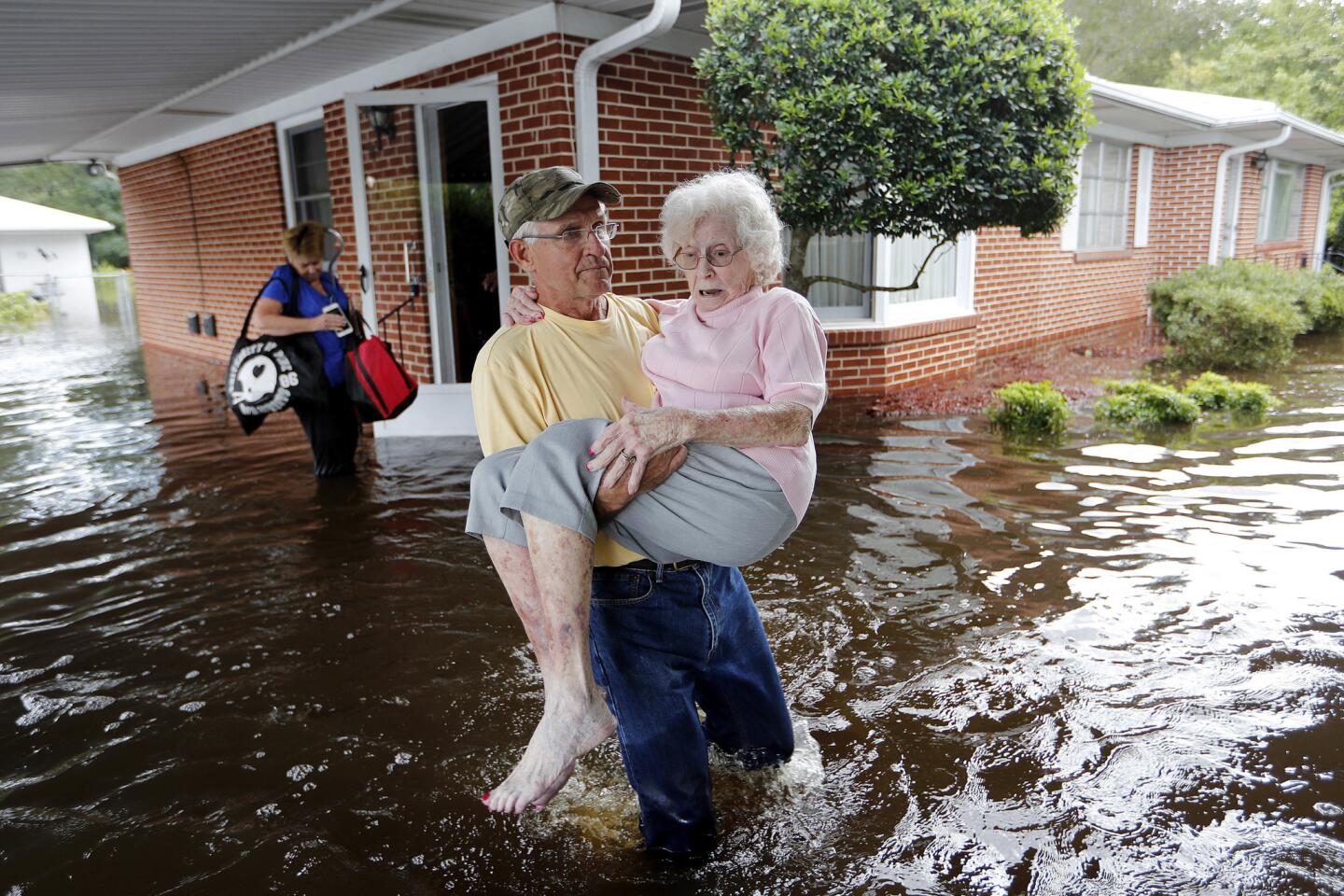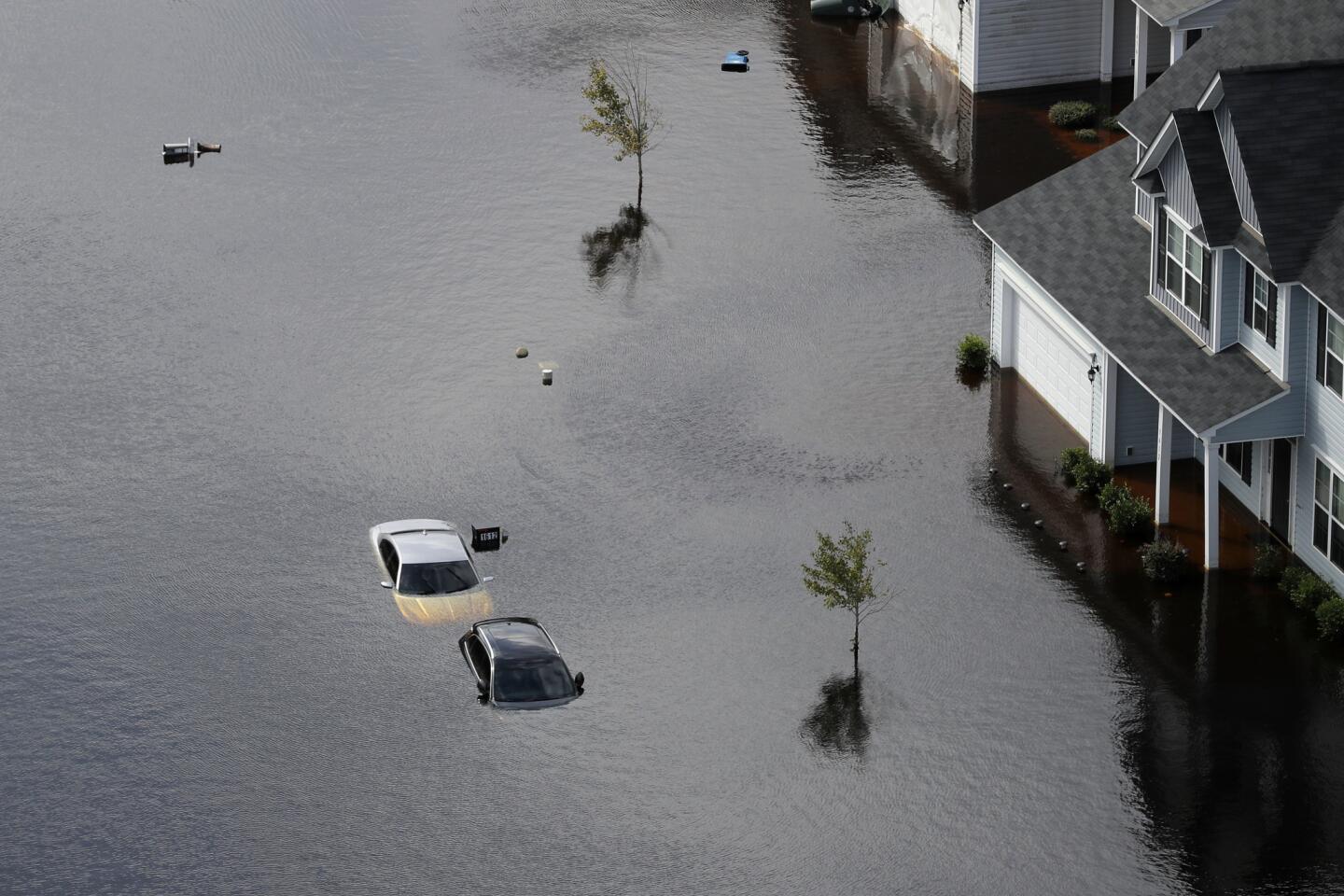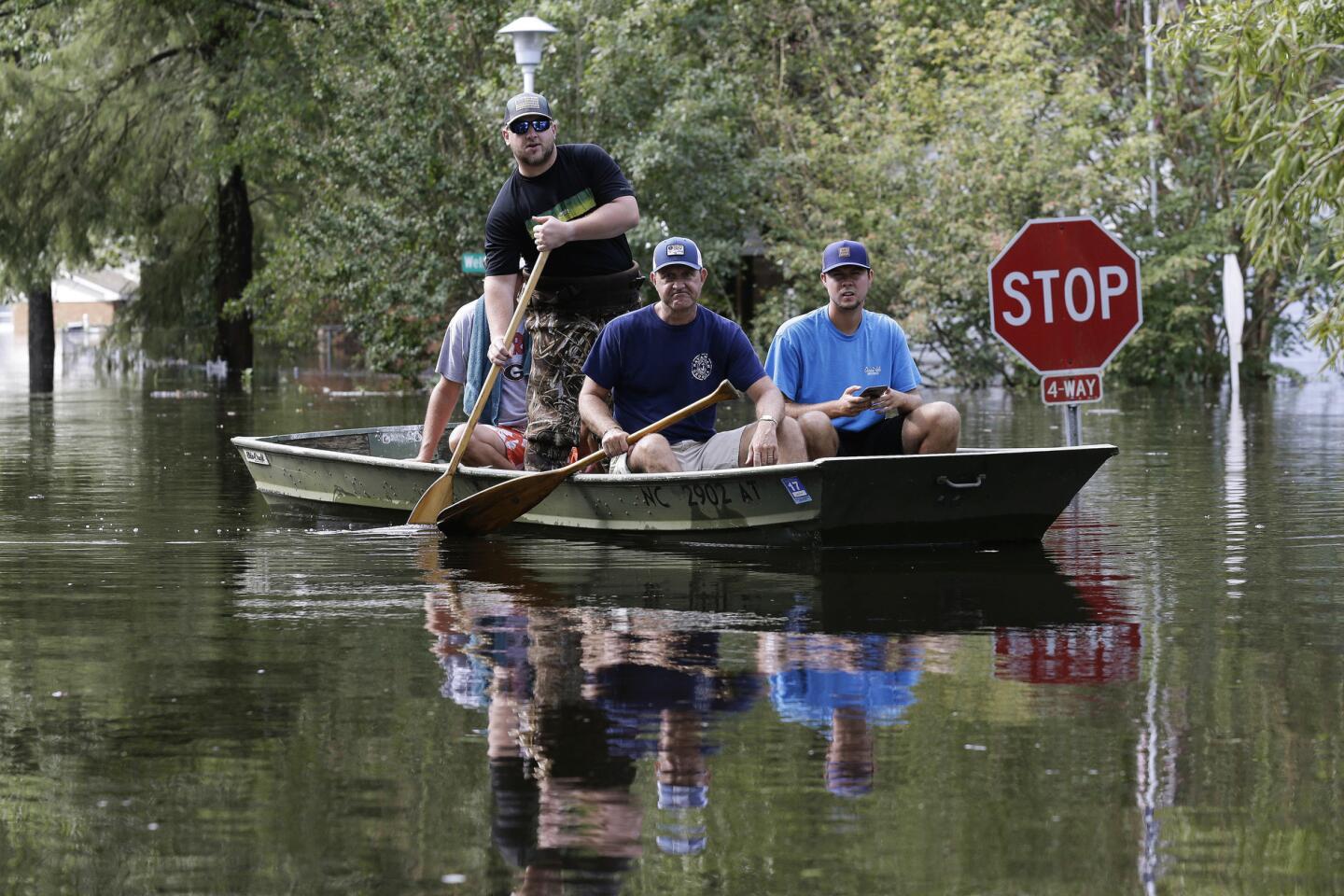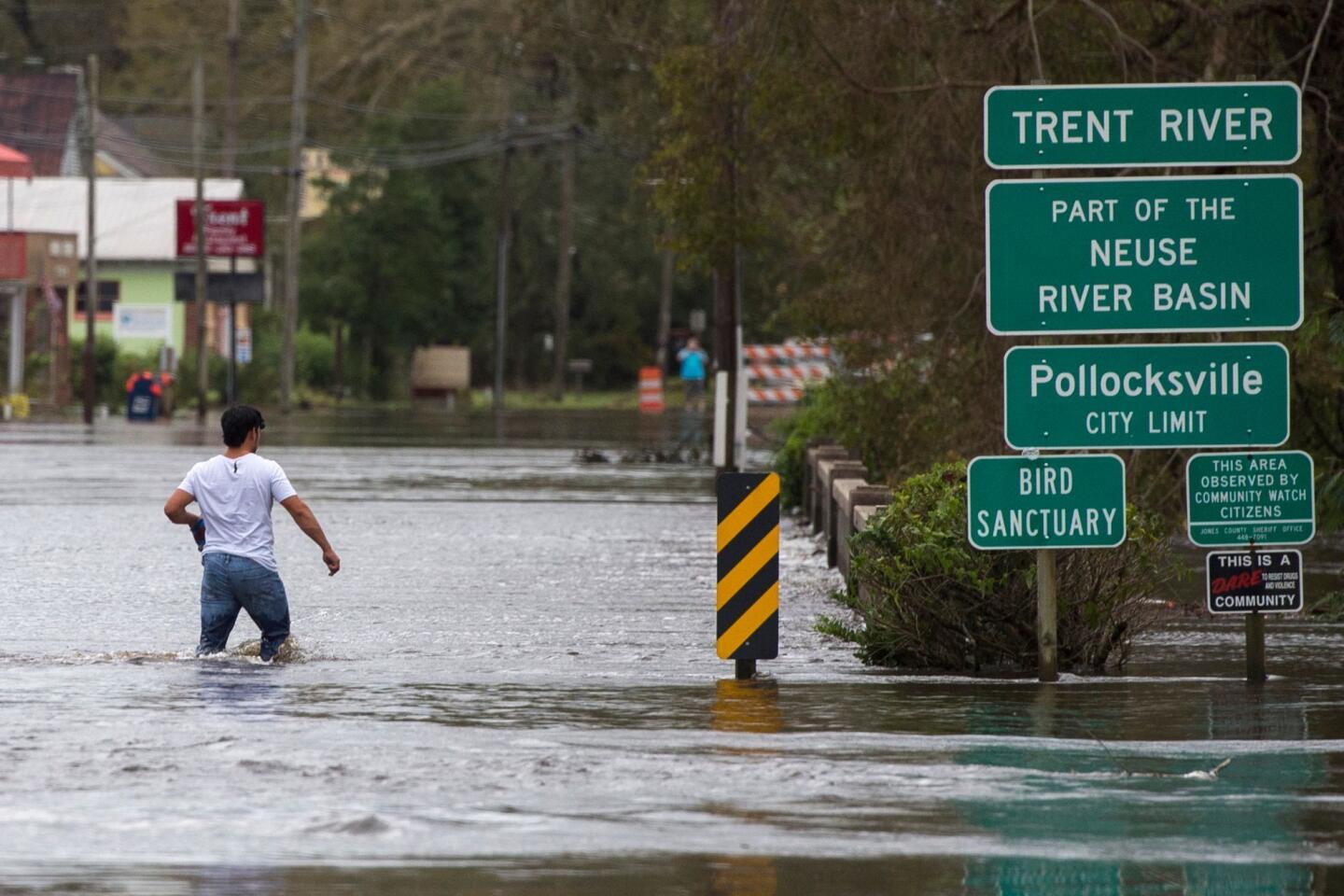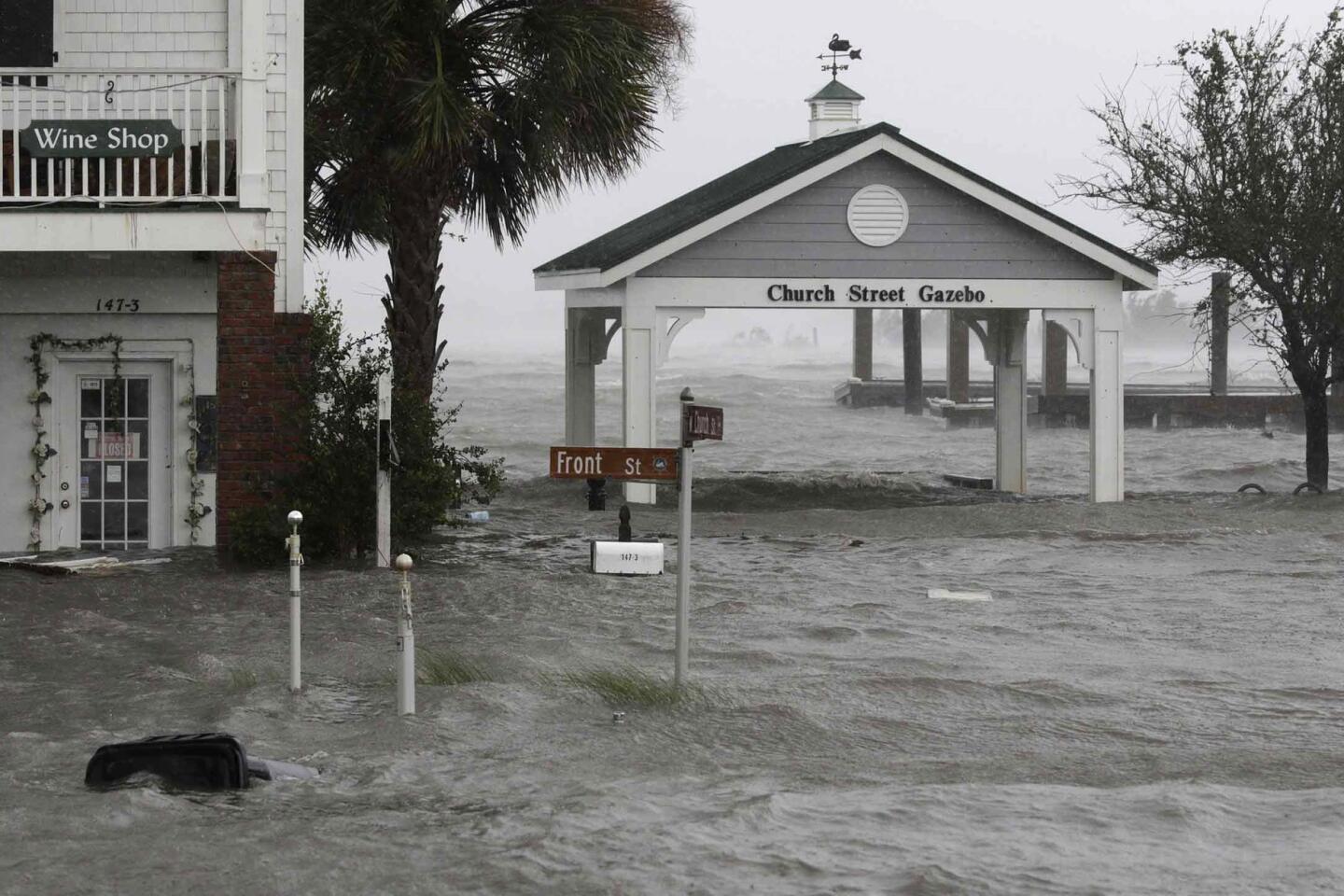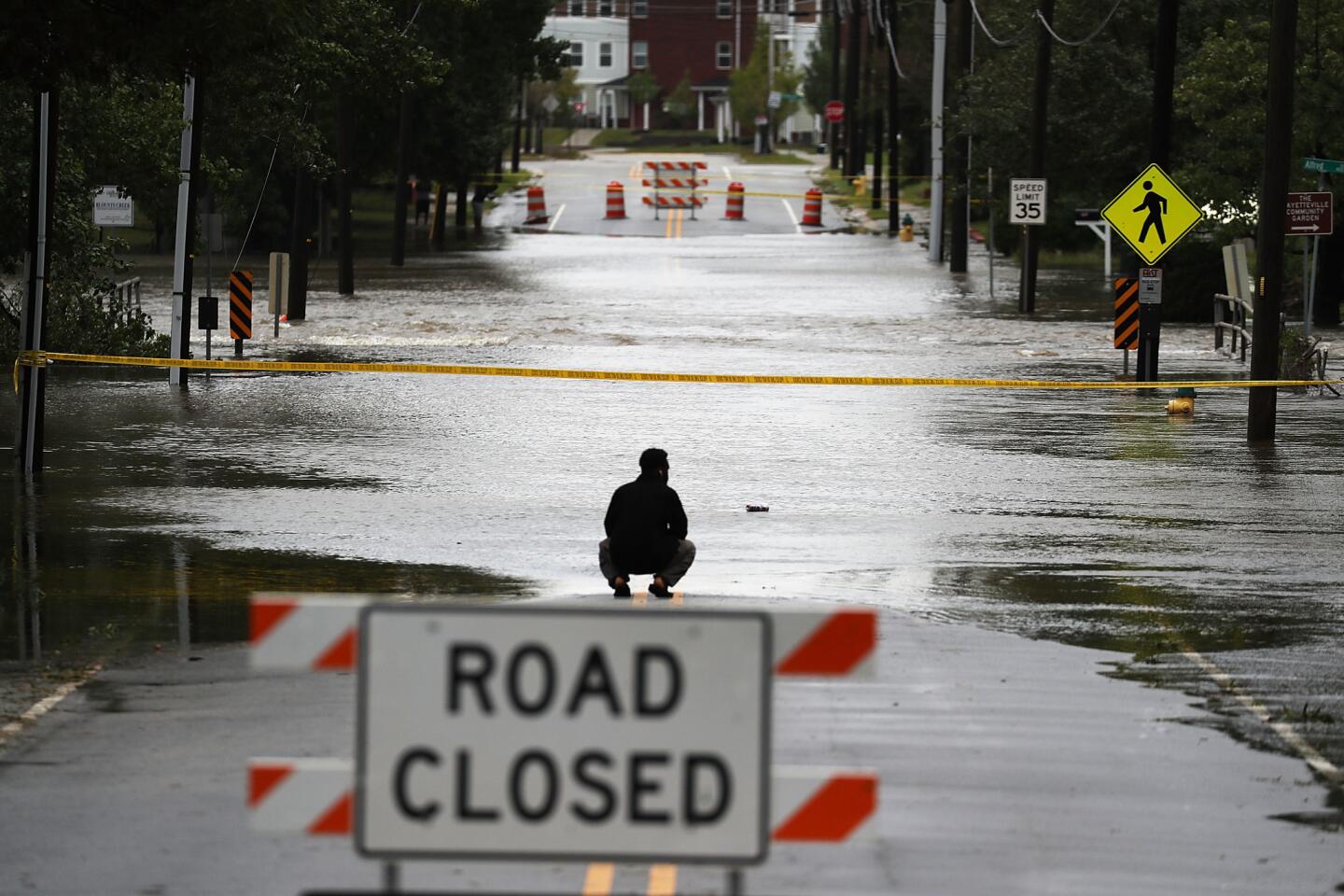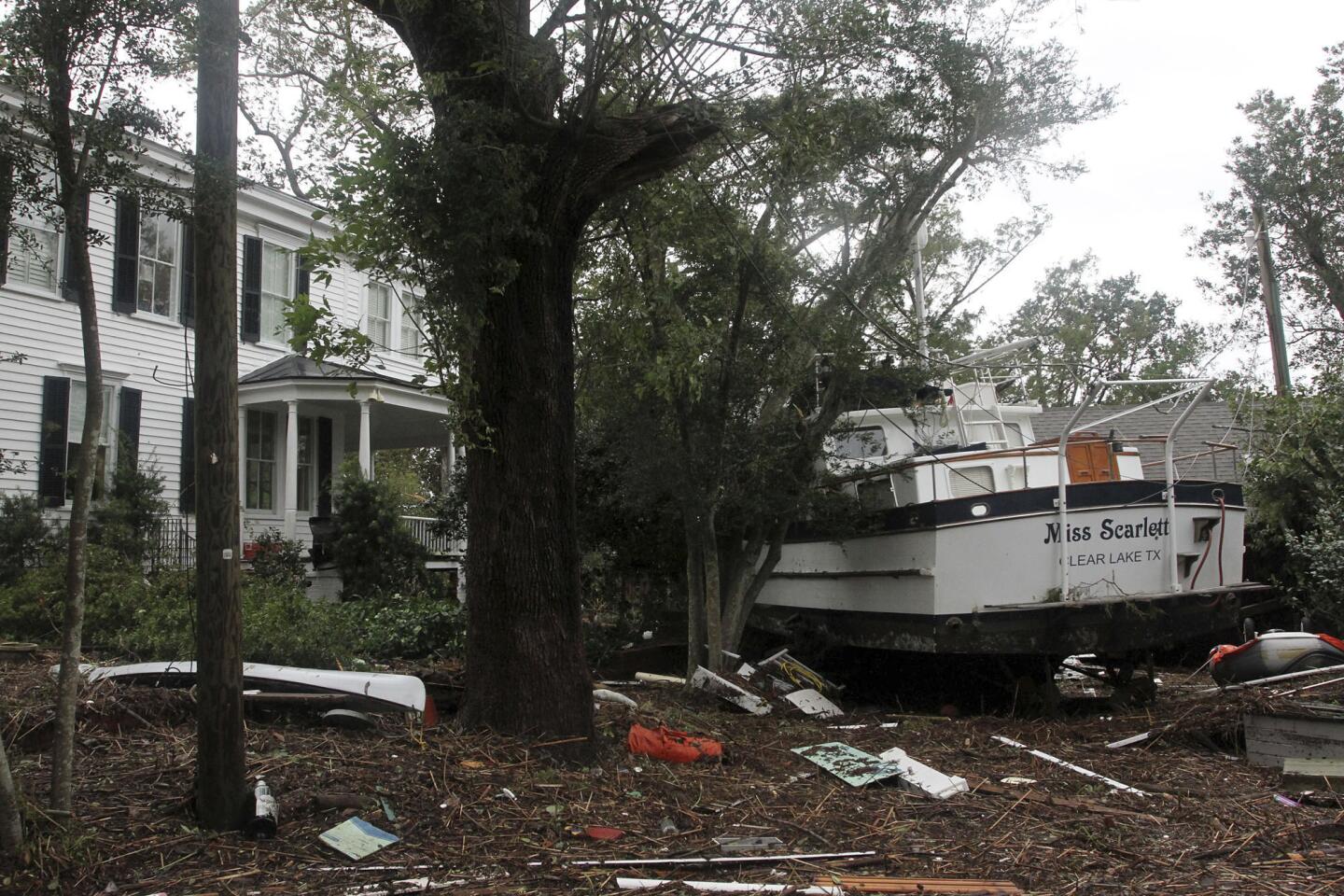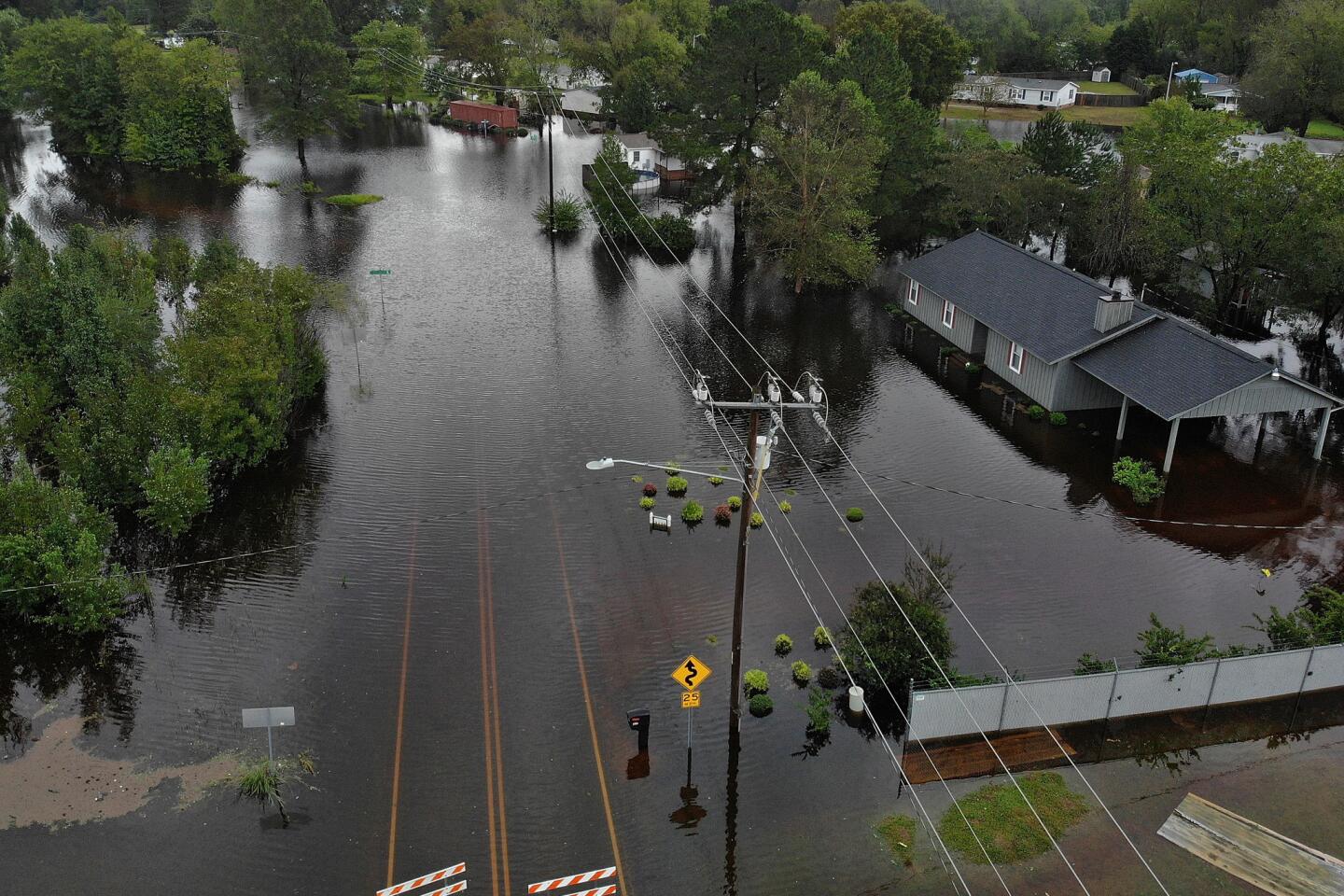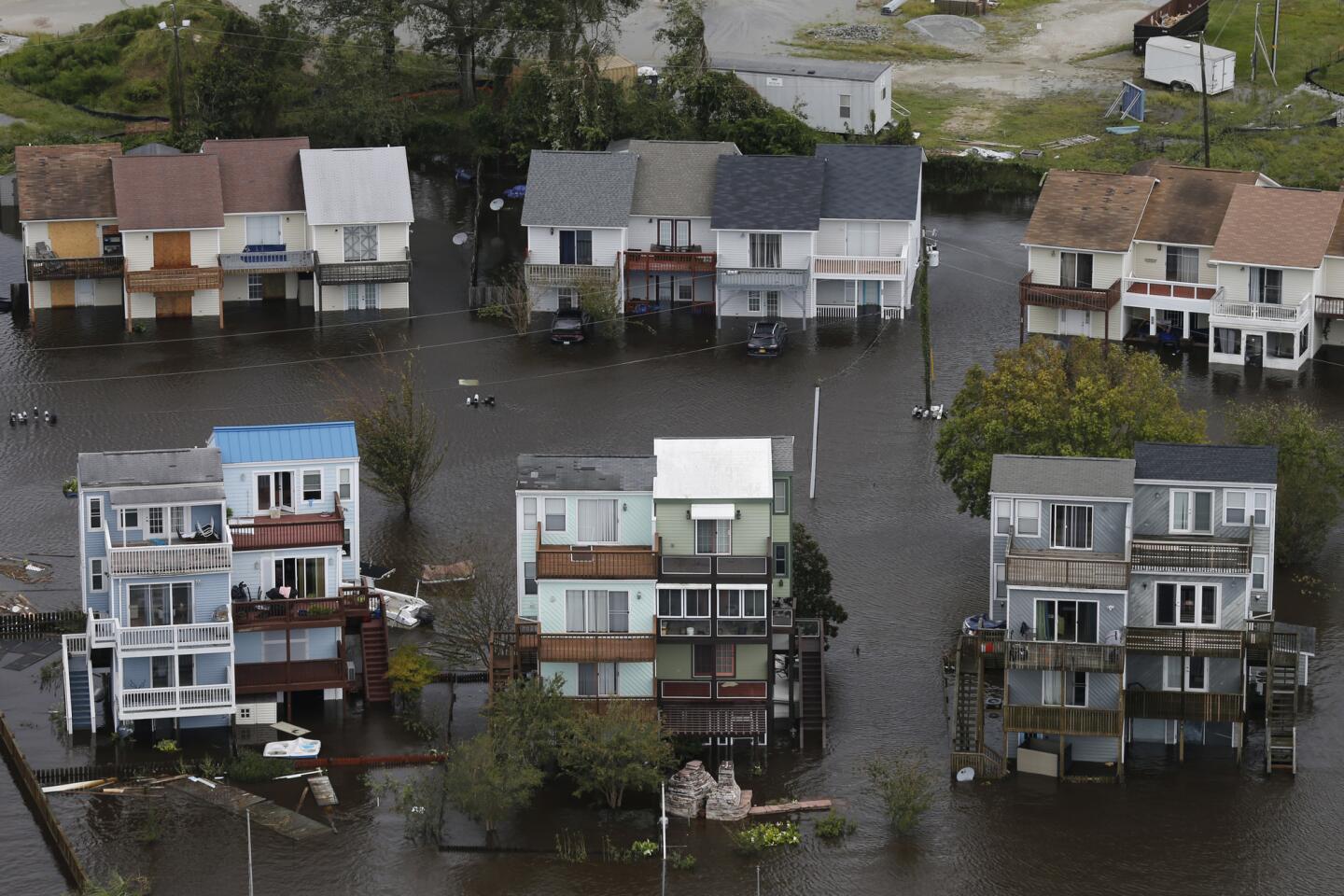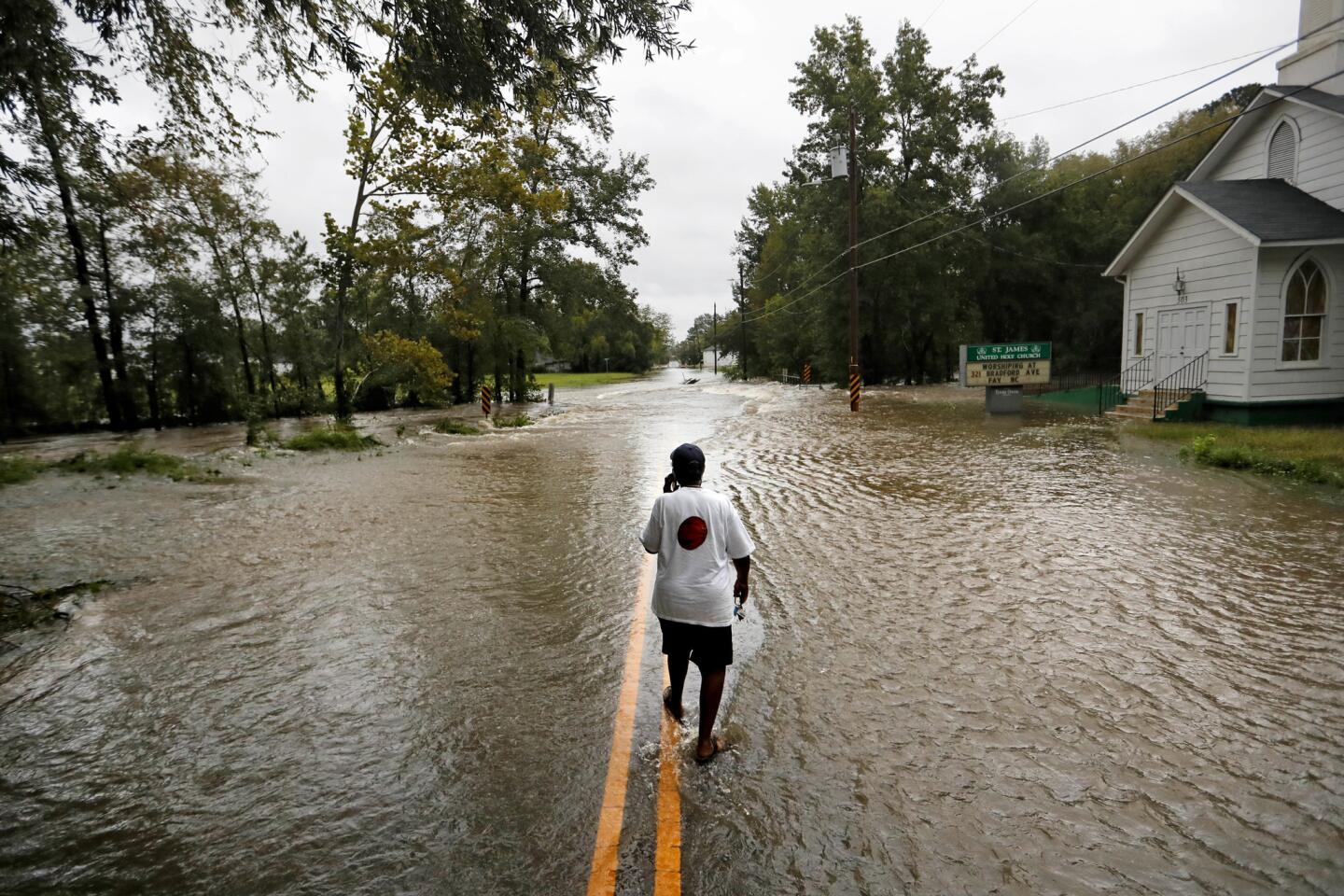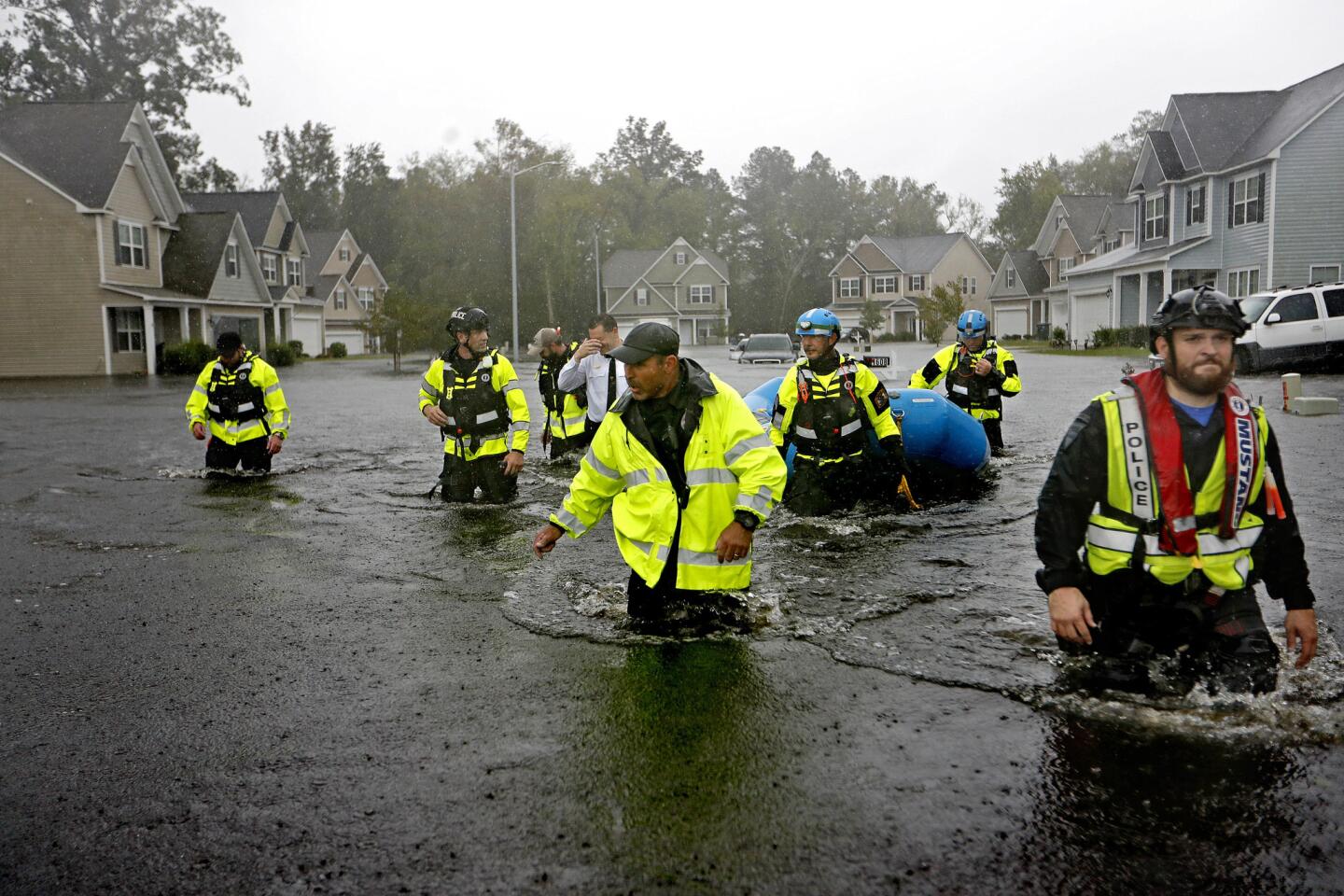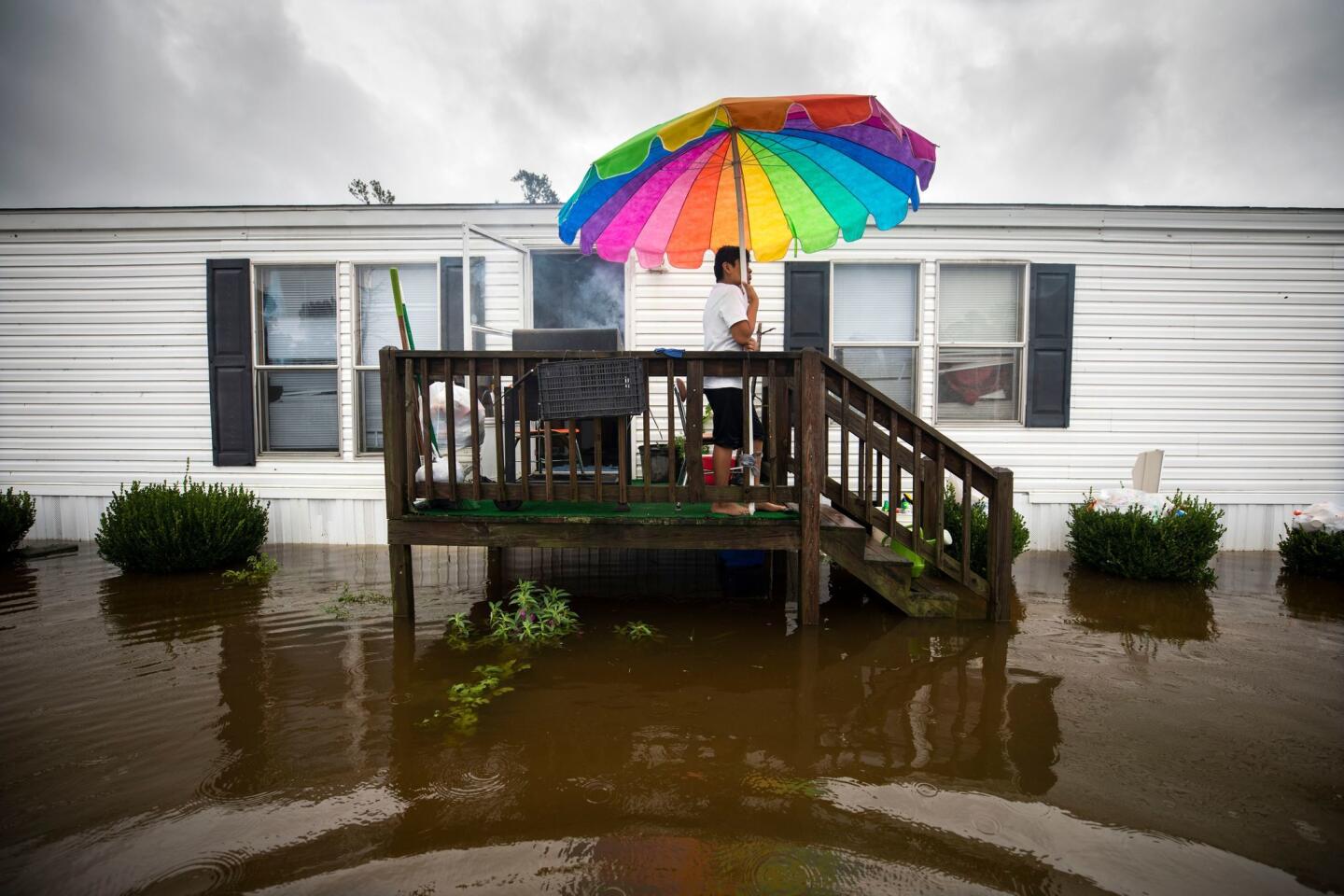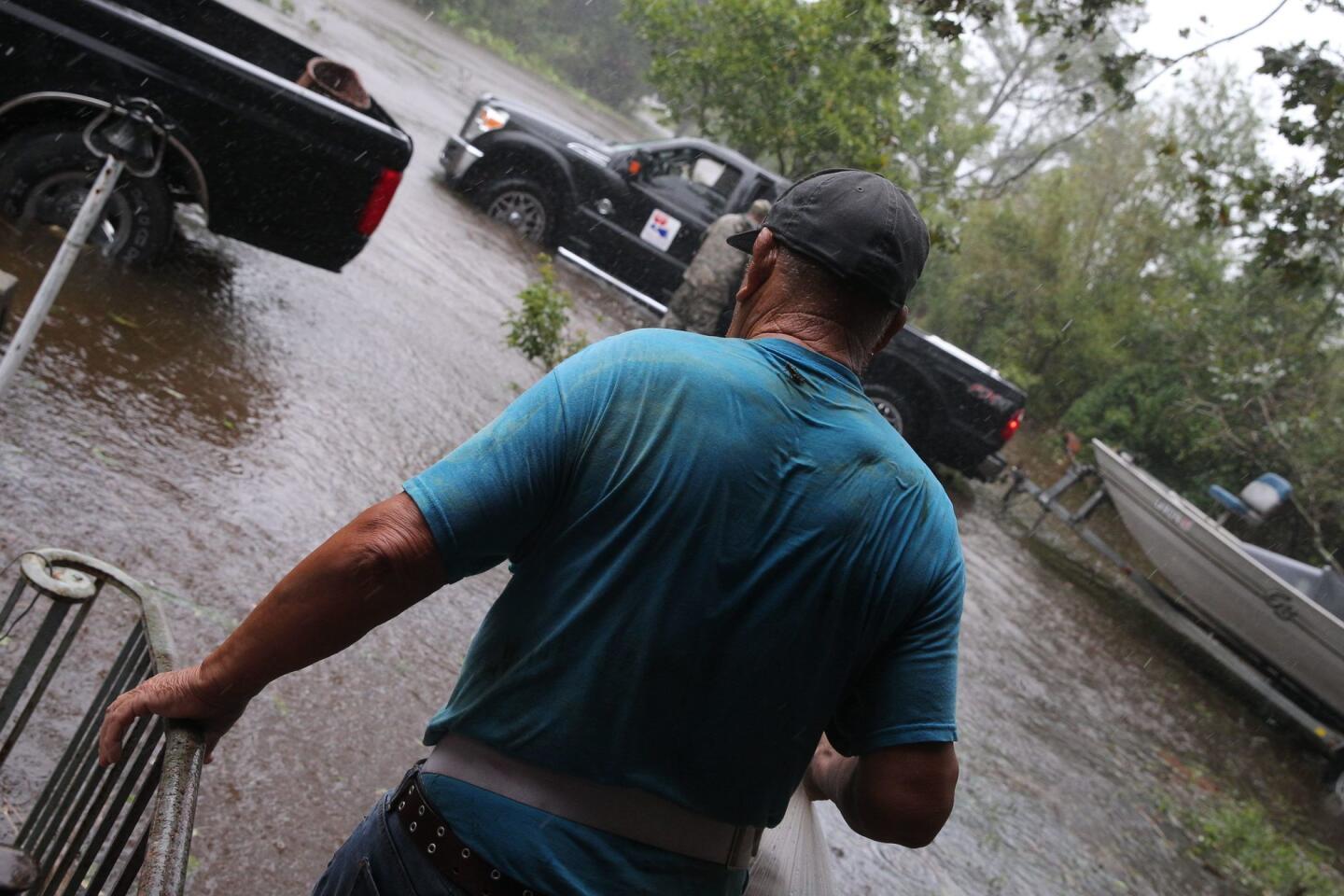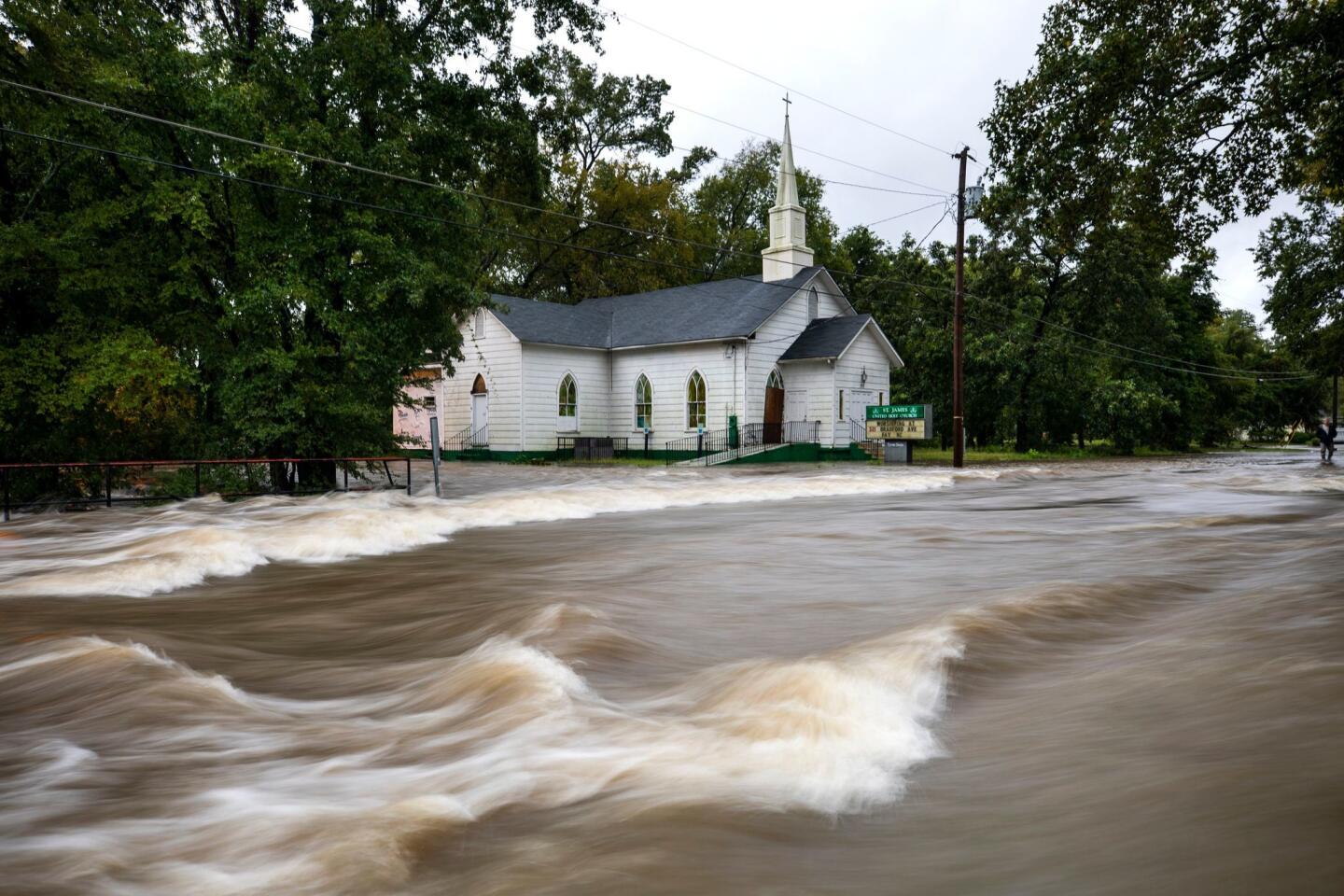Escaping a major storm like Florence is tough. It’s even tougher when you’re broke
Reporting from Fayetteville, N.C. — As the mandatory evacuation deadline for her neighborhood in Fayetteville neared Sunday, Patricia McGirt scanned her small apartment near the rising Cape Fear River one last time.
McGirt had already put clothes in plastic white trash bags. She lifted her most prized possession, her father’s framed poem of “Jesus’ Grocery Store,” off her living room wall.
She couldn’t afford a U-Haul, so she’d have to leave the rest of her things and hope the flooding river 350 feet away — gorged by rains from Tropical Depression Florence — did not reach the second floor of the Point Place public-housing complex where she lives.
“This is it, y’all,” McGirt, 44, said sadly as she walked out with her fiance and her brother. She left behind her TV and her fish tank, her children’s baby photos and wall tapestries, her figurines of black cherubs and turtles.
Florence’s slow-moving assault on the mid-Atlantic generated more problems and anxiety Sunday as the former hurricane — the wettest storm in the recorded history of the Carolinas — kept dumping rain on millions of residents. The storm was responsible for at least 17 deaths as of late Sunday, officials said.
The misery has been spread far and wide. More than 600,000 North Carolinians lacked power Sunday. Major roads into the coastal city of Wilmington had been flooded, cutting off its residents from escape; hundreds more roads around the state remained blocked.
As is often the case, the disaster has presented the toughest challenges to poorer residents, who often lack the financial resources to escape. Many live in the low-lying neighborhoods in eastern and central North Carolina that are expected to flood in the coming days as storm-gorged rivers rise over their banks.
In Fayetteville, a military city of 200,000 that is home to the Army’s Ft. Bragg, nearly 20% of residents live below the poverty line, and many of them live near Cape Fear River, which is expected to crest Tuesday as floodwaters from Florence start draining toward the Atlantic Ocean.
As county and city officials called for a mandatory evacuation of all homes within a mile of the Cape Fear River by 3 p.m., a little over 1,000 residents had crammed into city shelters. Police and emergency crews fanned across the city to notify residents of the mandatory evacuation zones, and public buses picked up residents.
“We’re trying to make sure lack of transportation is not a barrier to safety,” Mayor Mitch Colvin said. “If you don’t have resources and are asked to evacuate, we are trying to help you do it.”
Kynisha Johnson, a 28-year-old hair stylist, waited anxiously outside her apartment in the pouring rain for her family to come to her rescue Sunday morning.
She doesn’t own a car. Her mom’s three-bedroom house is already crammed with five people — including Johnson’s 5-year-old daughter, Neveah — so there isn’t room to store her things anyway, except for some clothes and important documents.
She was waiting for her brother in New Jersey to send her $40 so she could buy some food – oatmeal, graham crackers and canned tuna.
“I don’t have anything right now,” she said.
Many residents were still trying to recover from Hurricane Matthew two years ago, which flooded apartment complexes and homes across town, displacing low-income residents and leaving them struggling to pick up the pieces.
“A lot of people are having really bad anxiety about what life was like, and they’re reliving this nightmare,” Colvin said.
Anthony Evans, a 52-year-old laborer, is one of them. He lives on a ground-floor apartment at Sycamore Park, a mixed-income housing complex south of downtown Fayetteville, that flooded up to his knees during Matthew.
That storm forced Evans and his wife to live in a motel for two months as the walls and flooring of their home were repaired. Evans, who earns $11.50 an hour, had to scrabble to find the money to replace their bedroom set, their sofa, chairs, coffee tables and all his tools.
“Ain’t nobody got money,” he said. “FEMA gave me a couple of dollars, but it still doesn’t add up to what you lost.”
Now he was evacuating again, picking up a bag of Army ready-made meals and a folding chair for his stay at the emergency shelter set up at Mac Williams Middle School.
“It’s just too much,” Evans said as he walked through his home, where he had piled plastic bins and towels on kitchen cabinets and stacked one coffee table on top of another. “I’m hoping and praying the water doesn’t come in.”
A few streets away, Latisha Stone, 42-year-old warehouse worker, sat on a dark brown sofa on her second-floor apartment and sighed as she poured a glass of sweet red wine into a martini glass.
With only hours until the mandatory 3 p.m. evacuation was in effect, she was stalling. She could not afford a hotel and didn’t want to go to a shelter.
“Why do we have to leave today?” she said. “They want us to be in a shelter for three days?”
“We really got nowhere to go,” said her daughter, Krystian Stone, 22, a temporary worker at another warehouse.
Krystian had just bought a new car, a Dodge Avenger, and was scared it was going to be flooded. She had a friend she could stay with, but didn’t want to be separated from her mom.
Already, she had lost a few days’ work because of the storm, and she was worried about the loss of income. If she couldn’t go to work, she would struggle to pay her $200 car payment and $100 daycare bill.
“This is so hard,” she said as her 2-year-old daughter Kaliyah spilled Lucky Charms over the carpet. “We don’t want to leave our one space.”
Some residents in the mandatory evacuation zone were unconcerned about getting out by the 3 p.m. deadline, facing the storm with weary forbearance.
“I ain’t leaving until I cook my sausage,” said Joslyn Jackson 39, a high school cafeteria worker, who was doubtful her ground-floor apartment at Point Place would flood.
“I don’t want my toys to be ruined,” her 5-year-old daughter, London, said as she skipped to her bedroom, filled with Peppa Pig soft toys, a Frozen bicycle, and a build-a-bear unicorn on skates.
“Get your school shoes,” Jackson hollered to London, who came back with a pink life preserver and an umbrella festooned with cats and dogs.
“I worked hard for the little things I do have,” Jackson said as she slowly started to prepare to leave for her grandmother’s place. “If I lose everything, we’d have to start over.”
But she was confident. She took a drag of her cigarette and said God would not present her anything she couldn’t handle.
Times staff writer Matt Pearce in Los Angeles contributed to this report.
Twitter: @jennyjarvie
More to Read
Sign up for Essential California
The most important California stories and recommendations in your inbox every morning.
You may occasionally receive promotional content from the Los Angeles Times.
